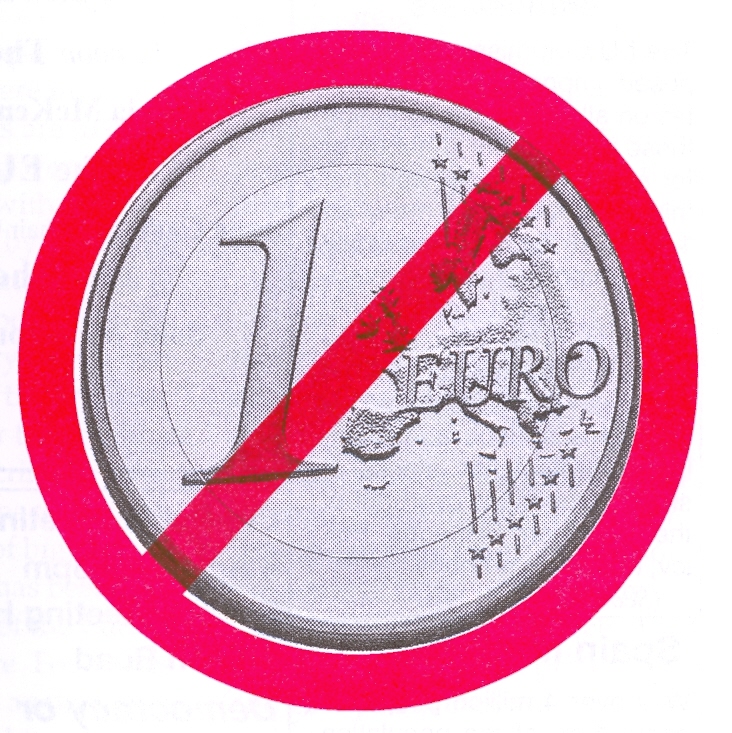Democrat Editorial November-December 1998 (Number 33)
Independence and the EURO
by Brian Denny

The high priests of "globalisation" - the corporate
pundits that advocate the abolition of any democratic controls over
capital as a universal economic vision for the future - are in something
of a funk. Just like the Emperor with his "new clothes" the thin veneer
of intellectual respectability to their claims are melting away rather
more quickly than they were built up.
This globalist public relations crisis may bring
some small relief to democrats around the world who have been witnessing
the horrific effects of this particular form of fundamentalism which
was only measured by the profits made by Western corporations.
In Britain people are asking if it is now "independent"
in whose interest is the Bank of England running the economy? If manufacturing
must be sacrificed for the sake of "price stability" it must be worth
it for someone?
Who benefits?
The main beneficiary is the very corporations that
are promoting free market fundamentalism and European economic and
monetary union. That eurofanatics have managed to develop the concept
that a body made up of faceless, unelected central bankers should
be allowed total control over the fiscal policy of 11 European nations
taking part in the single currency is, in itself, staggering.
Yet it is the logical step for those who believe that
a few thousand champagne-guzzling traders just out of their teens
should be allowed to rule and ruin economies around the world.
Independence
The idea that any banks are "independent" in order
that economics runs some "natural" course is, indeed, a bizarre one.
Even the mighty German Bundesbank itself is not independent.
It has an obligation under basic law to support the economic policy
of the German government in power. The US Federal Reserve system and
its chairman, Alan Greenspan, are not independent in the way European
central bankers conceive when running the Euro.
The Federal Reserve Bank is accountable to the Whitehouse,
which nominates its members, and to the Congress.
Yet under the terms of the Treaty on European Union
(Maastricht) the European Central Bank must be "independent" and any
country attempting even influence is liable to be heavily fined by
Brussels for "intervening" in matters which effect the economy.
Economic government
Despite this clear commitment to the complete elimination
of democracy the new social democratic German finance minister Oskar
LaFontaine suggests that the 11 countries tied to the euro will need
some form of "economic government." Mr LaFontaine is simply confirming
what most democrats already knew - that EMU is a political move towards
the creation of a country called Europe.
The 11 have already established the so-called Euro-11
Council to meet during European economic and finance ministers meetings,
which will informally monitor the European Central Bank decisions.
A price worth paying
The collapse in confidence in hard money orthodoxy at any expense- "a price worth paying" - is a chink of light to democrats which could lead the way to a return to a saner path for economic development which includes human beings in the decision-making process and reflects their aspirations for a prosperous and peaceful world rather than one of unending corporate dictatorship.